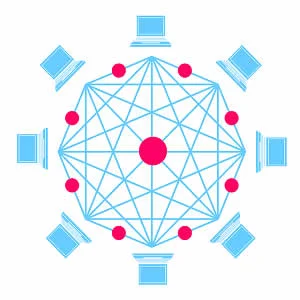The need to improve interoperability and security of the healthcare information systems is a major factor for the growing adoption of blockchain technology in the healthcare sector, according to a new report from global market intelligence and advisory firm BIS Research.
The report says the blockchain in healthcare is projected to be $176.8 million in 2018, and is estimated to grow over $5.61 billion by the end of 2025. Blockchain's edge is anchored in its ability to record and store data conveniently and economically and share the data securely among different applications and systems.
As noted in the report, the use of blockchain for healthcare data exchange will contribute the largest market share to the blockchain in the healthcare market throughout the forecast period, reaching a value of $1.89 billion by 2025.
"The blockchain in the healthcare market is going to be driven by the urgent need to improve interoperability and security of the healthcare information systems. Around 14 percent of healthcare organisations are expected to have a blockchain based system in place by the end of 2018, while 70 percent are expected to have invested in getting the technology on-board by 2020," according to Pushplata Patel, an analyst at BIS Research.
Indeed, various successful use-cases of blockchain have already been piloted, ranging from tracking of consent in clinical trials, development of healthcare information exchange platforms, to pharma supply chain solutions, Patel said, noting that healthcare data exchange, health insurance, and clinical trials are expected to witness "large disruption" in the coming years.
The adoption of the technology, according to the report, could save the healthcare industry up to $100-$150 billion per year by 2025 in data breach-related costs, IT costs, operations costs, support function costs and personnel costs, and through a reduction in frauds and counterfeit products.
The most prominent beneficiaries of the technology will be the pharmaceutical companies, which lose approximately $200 billion to counterfeit drugs each year. By enabling complete visibility and transparency throughout the drug supply chain, blockchain will allow tracking of drugs to their point of origin and thus, help to eliminate falsified medication, reducing revenue loss by up to $43 billion annually for pharma companies, the report explains.
BIS Research says the market intelligence report is a meticulous compilation of research on more than 100 players in the market ecosystem and draws upon insights from the in-depth interviews with the key opinion leaders of more than 60 leading companies, market participants, and vendors.
Source: BIS Research
Image Credit: Pixabay
Latest Articles
healthcare IT, healthcare data, blockchain
A new report says the use of blockchain for healthcare data exchange will contribute the largest market share to blockchain in the sector with a projected value of $1.89 billion by 2025.










